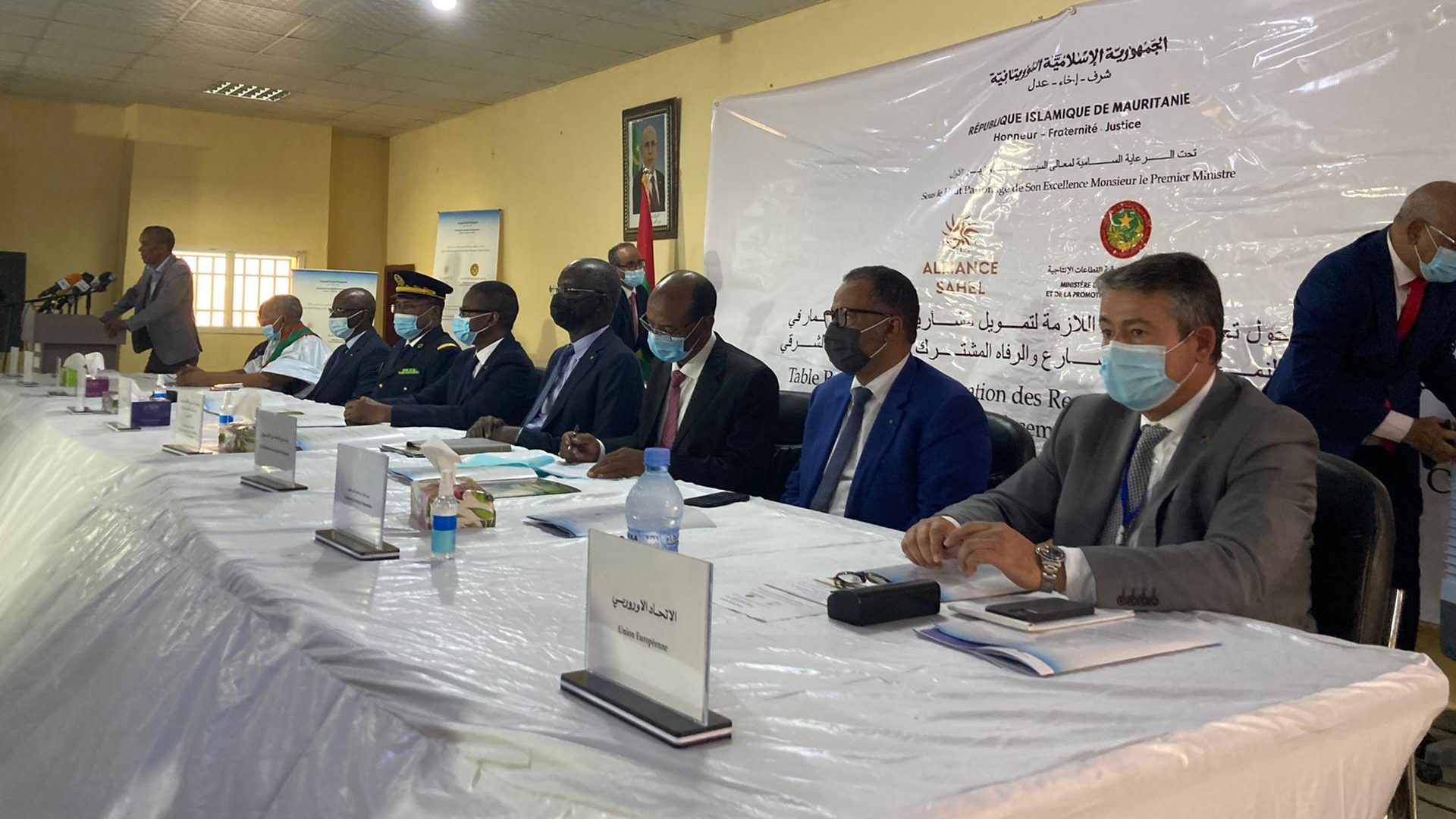Hodh Echarghi’s Prosperity: An Overview of the Sahel Alliance Members’ Commitments
The Nema round table in November 2021 saw the members of the Sahel Alliance undertake major commitments to support the growth and prosperity strategy of the Hodh Echarghi region in Mauritania. What progress has been made in implementing these commitments two years on?
Background: The Integrated Territorial Approach
In order to respond to the populations’ most pressing needs while tackling the root causes of the vulnerabilities, the members of the Sahel Alliance adopted an Integrated Territorial Approach (ITA). This approach involves adjusting development actions to the specific characteristics and constraints of each area, while integrating existing local development strategies. The integrated territorial approach is a reference framework for coordinating the efforts of all stakeholders involved in the development of a given area.
In Mauritania, the Minister of Economic Affairs decided to focus the efforts of Alliance members on the Hodh Echarghi region by the end of 2020. Taking into account the region’s development strategy (Regional Strategy for Accelerated Growth and Shared Prosperity), a detailed roadmap was set out for 2021, in order to strengthen the capacity of local administrative authorities in Hodh Echarghi to monitor and coordinate the region’s development.

In order to facilitate joint financial programming, the Mauritanian Ministry of the Economy offered to organise a round table during which members of the Sahel Alliance would confirm their funding pledges to support the implementation of the regional strategy for the Hodh Echarghi.
Commitments Undertaken at the Nema Round Table
On 27 November 2021, members of the Mauritanian government, technical and financial partners and members of the Sahel Alliance, administrative authorities, local representatives, decentralised government departments, civil society organisations and local stakeholders met in Nema, at the invitation of the Prime Minister, Mohamed Bilal Messoud.
During the Nema round table, the Prime Minister expressed the determination of the Mauritanian President, Mohamed Ould Cheikh El Ghazouani, to pursue and broaden efforts to develop the region’s social and economic potential.

Participants reviewed the 2022-2025 regional public investment programme, aimed at improving living conditions and creating jobs, with a focus on young people, consisting of 29 projects in various sectors, ranging from agriculture to education, from social affairs to the development of socio-economic infrastructure.
The technical and financial partners agreed to provide financial support for this programme totalling around USD 118 million.

2 Years After the Nema Round Table: What Progress Has Been Made?
Based on the commitments made at the Nema round table, by the end of June 2023, the members of the Sahel Alliance had completed the following disbursements:
- Pillar 1: almost 50% of commitments fulfilled
- Pillar 2: over 36% of commitments fulfilled
- Pillar 3: almost 16% of commitments fulfilled
With regard to the implementation of a shared strategic and steering framework, the regional council received support in drawing up a priority action plan for each of the wilaya’s Moughataa and training in contract award procedures. A series of documents, such as a summary of the Regional Strategy for Accelerated Growth and Shared Prosperity (SCRAPP) and sector factsheets in Arabic and French, have been made available to the deconcentrated and decentralised authorities, civil society and partners, to improve knowledge of the region and enable informed decision-making.
Regarding support for the implementation of a monitoring and evaluation framework, at the beginning of 2022 the Ministry of the Economy launched a Monitoring Unit for Projects and Programmes in Hodh Echarghi, coordinated by Mr. Cheikh A. Ewah. The role of this unit is to monitor the progress of technical and financial support and to coordinate funding and projects in the region. The members of the Sahel Alliance supported this unit by designing a database of government and partner projects in the Hodh Echarghi and providing an expert for capacity building.
In terms of coordinating the various stakeholders in the region, the members of the Sahel Alliance have allocated human, logistical and financial resources to the wilaya in 2021, and then to the monitoring unit from March 2022 to facilitate coordination. This support helped to build the capacity of the Wali’s services, of the planning and monitoring unit and of the region’s services, and to implement, train and run the planned bodies (regional working group, departmental working groups). The goal of these bodies is to ensure dialogue between central and deconcentrated administrations and non-state stakeholders. In 2023, these bodies met regularly.
The roadmap also planned to improve knowledge of the area, by capitalising on and compiling an inventory of existing studies, analyses and policy documents to build a common knowledge base. This project could not be completed, but a number of studies have already been carried out in the Hodh Echarghi.
Progress at Ground Level
Under the coordination of the Hodh Echarghi Monitoring Unit, the Mauritanian government and the members of the Sahel Alliance are working together to improve the well-being of the region’s populations, in line with the local development strategy.
Video focus on 4 initiatives supported by members of the Sahel Alliance:
- Socio-economic inclusion of refugees and host communities in Mauritania
- Radio as a vehicle for social cohesion in Mauritania
- Access to justice for populations vulnerable to conflict
- Coordination of aid to refugees in Hodh Charqui
The Sahel Alliance in Mauritania consists of the following technical and financial partners: Germany, the African Development Bank, the World Bank, Spain, France, the European Union, the United Nations Development Programme (UNDP), the United Kingdom, the USA and Japan.
Note: The names “Hoch Echarghi” or “Hodh Charqui” refer to the same territory.
Find Out More

